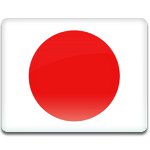Shōwa Day in Japan Date in the current year: April 29, 2026
 Shōwa Day is one of Japan’s public holidays. It commemorates the birth anniversary of Emperor Hirohito, who is now primarily referred to by his posthumous name, Emperor Shōwa. The holiday is celebrated annually on April 29.
Shōwa Day is one of Japan’s public holidays. It commemorates the birth anniversary of Emperor Hirohito, who is now primarily referred to by his posthumous name, Emperor Shōwa. The holiday is celebrated annually on April 29.Hirohito was born on April 29, 1901. He was formally appointed Regent of Japan at age 20 because his ailing father, Emperor Taishō (Yoshihito), was affected by a mental illness and couldn’t perform his duties. Hirohito’s regency saw a number of important events, including the signing of the Four-Power Treaty and the Washington Naval Treaty, the Great Kantō earthquake, and an assassination attempt on Hirohito dubbed the Toranomon incident.
Hirohito assumed the throne in 1926, following his father’s death on December 25, but the formal ceremony of his enthronement took place in 1928. Per a tradition, he was never referred to by his given name, but rather simply as “His Majesty the Emperor”. The period of his reign was named Shōwa, which can be roughly translated as “Japanese glory” or “radiant Japan”. After Hirohito’s death, the deceased Emperor was posthumously renamed Emperor Shōwa.
During the reign of Emperor Hirohito, April 29 was celebrated as the Emperor’s Birthday. When his son Akihito ascended the throne following his father’s death, the date remained a public holiday, but was renamed Greenery Day. In 2005, Greenery day was moved to May 4, and April 29 was declared Shōwa Day.
The holiday focuses on encouraging public reflection on the 63-year period of Hirohito’s reign rather that honoring the late emperor himself. The Shōwa period of Japanese history was long and turbulent. It saw the rise of Japanese militarism, several attempted coups, the Second World War, the post-war Allied occupation of the country, the 1964 Summer Olympics in Tokyo, and the Japanese economic miracle that made Japan the world’s second largest economy.
The Shōwa era consists of two periods, divided by the defeat of Japan in the Second World War that radically changed the country. The pre-war Shōwa period saw the decline of the Empire of Japan. The rising nationalism and expansionism eventually led to Japan signing the Tripartite Act with Fascist Italy and Nazi Germany and actively participating in World War II.
The post-war Shōwa period began with the Allied occupation of Japan and the transformation of Imperial Japan into the State of Japan. In 1952, the occupation officially ended, and Japan stepped into a period of remarkable economic growth, rebuilding itself economically and politically. By the late years of Emperor Hirohito’s reign, Japan had the second largest economy in the world after the United States.
Shōwa Day is the first day of the so-called Golden Week. It is the longest vacation period of the year in Japan, which includes four public holidays: Shōwa Day (April 29), Constitution Memorial Day (May 3), Greenery Day (May 4), and Children’s Day (May 5). Many businesses are closed for the entire week, and people spend the week vacationing or visiting their relatives.
- Category
- Public Holidays
- Country
- Japan
- Tags
- Shōwa Day in Japan, holidays in Japan, public holiday, Emperor Hirohito, Golden Week